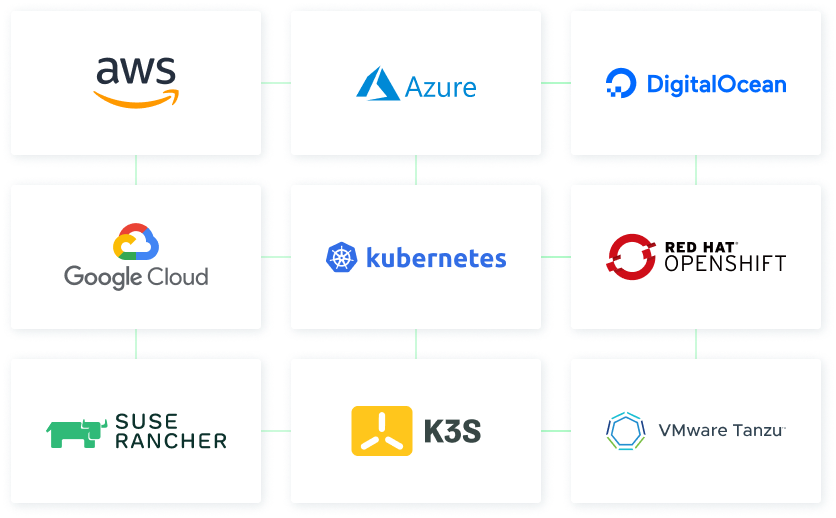Free Kasten K10
#1 Kubernetes Data Protection
Optimized for Kubernetes, Powered by Kubernetes
- Quickly recover Kubernetes workloads
- Move applications between clouds and on-premises
- Protect your business from ransomware

Thank You for Your Request!
To install Kasten K10, please select from the below: